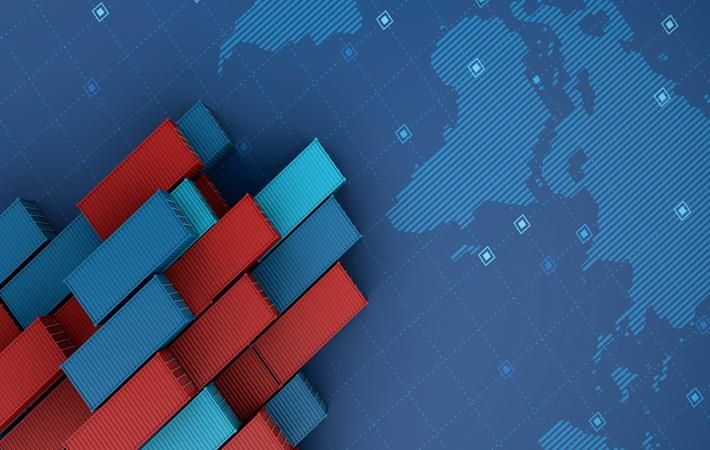Interviews
Indonesia merits special treatment in global trade: INDEF
06 Mar '20
3 min read

Pic: Shutterstock
Indonesian economists feel their country still deserves special treatment in global trade despite the United States recently taking the country off its list of developing countries. They urged the government to defend its developing nation status so that Indonesia continues to benefit from the World Trade Organisation’s (WTO) special differential treatment (SDT).
Based on its gross national income (GNI) per capita and parameters of social development, among other factors, Indonesia should still be considered a developing country, economists at the Institute for Development of Economics and Finance (INDEF) said.
Indonesia’s GNI is only around $3,800 per capita, much lower than that of the United States, INDEF economist Tauhid Ahmad said in a press conference in Jakarta recently.
According to the World Bank’s parameter, high-income economies are those with a GNI per capita of $12,376. Indonesia with a GNI per capita of $3,840 in 2018 is considered a lower-middle-income economy, the category for countries with a GNI per capita between $1,026 and $3,995.
Based on several social development parameters, Indonesia had more characteristics of a developing country than a developed one, INDEF senior economist Aviliani said.
In the United Nations Development Programme’s Human Development Report 2018, Indonesia ranked 111th with a human development index (HDI) score of 0.707, or 96 ranks below the United States, which ranked 15th with an HDI of 0.920.
Aside from the aforementioned parameter, Aviliani explained, numerous other characteristics justified Indonesia defending its developing country status. The majority of Indonesia’s population still works in agriculture with traditional farming equipment, and high levels of unemployment were indicators of a developing country, he said.
The United States Trade Representative (USTR) rolled out a new policy in February and removed several countries from the list of developing and least-developed countries, including Indonesia.
INDEF researcher Ahmad Heri Firdaus said with the new US policy, Indonesia’s exported goods would be subject to higher import taxes, which could increase the price of the goods in the international market, according to a report in an Indonesian newspaper.
According to a simulation he ran with the Global Trade Analysis Project (GTAP), assuming that import tax would rise to 5 percent from the current position, Indonesia’s main export products to the United States would suffer a loss of up to 2.5 per cent.
Several commodities would be affected. For example, textile product exports would decrease by 1.56 per cent and components for electric machines were projected to decrease by 1.2 per cent.
Based on its gross national income (GNI) per capita and parameters of social development, among other factors, Indonesia should still be considered a developing country, economists at the Institute for Development of Economics and Finance (INDEF) said.
Indonesia’s GNI is only around $3,800 per capita, much lower than that of the United States, INDEF economist Tauhid Ahmad said in a press conference in Jakarta recently.
According to the World Bank’s parameter, high-income economies are those with a GNI per capita of $12,376. Indonesia with a GNI per capita of $3,840 in 2018 is considered a lower-middle-income economy, the category for countries with a GNI per capita between $1,026 and $3,995.
Based on several social development parameters, Indonesia had more characteristics of a developing country than a developed one, INDEF senior economist Aviliani said.
In the United Nations Development Programme’s Human Development Report 2018, Indonesia ranked 111th with a human development index (HDI) score of 0.707, or 96 ranks below the United States, which ranked 15th with an HDI of 0.920.
Aside from the aforementioned parameter, Aviliani explained, numerous other characteristics justified Indonesia defending its developing country status. The majority of Indonesia’s population still works in agriculture with traditional farming equipment, and high levels of unemployment were indicators of a developing country, he said.
The United States Trade Representative (USTR) rolled out a new policy in February and removed several countries from the list of developing and least-developed countries, including Indonesia.
INDEF researcher Ahmad Heri Firdaus said with the new US policy, Indonesia’s exported goods would be subject to higher import taxes, which could increase the price of the goods in the international market, according to a report in an Indonesian newspaper.
According to a simulation he ran with the Global Trade Analysis Project (GTAP), assuming that import tax would rise to 5 percent from the current position, Indonesia’s main export products to the United States would suffer a loss of up to 2.5 per cent.
Several commodities would be affected. For example, textile product exports would decrease by 1.56 per cent and components for electric machines were projected to decrease by 1.2 per cent.
Fibre2Fashion News Desk (DS)
Popular News
Leave your Comments
Editor’s Pick
































-Ltd..jpg?tr=w-120,h-60,c-at_max,cm-pad_resize,bg-ffffff)





.jpg?tr=w-120,h-60,c-at_max,cm-pad_resize,bg-ffffff)
.jpg?tr=w-120,h-60,c-at_max,cm-pad_resize,bg-ffffff)






